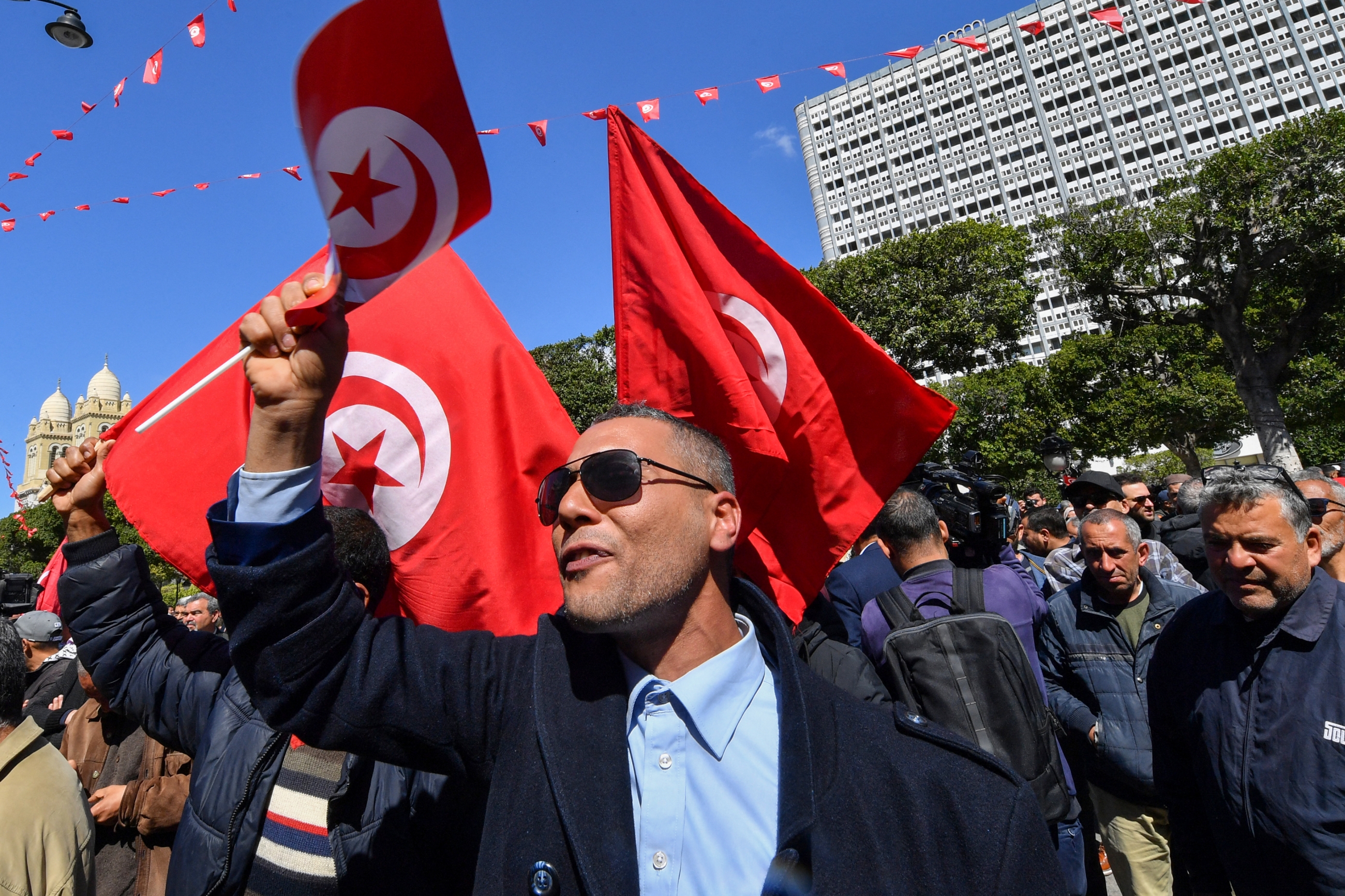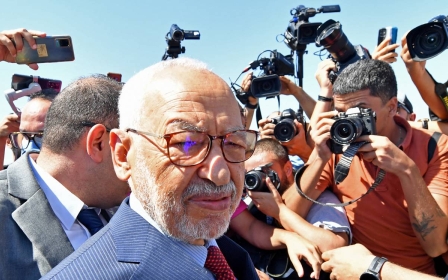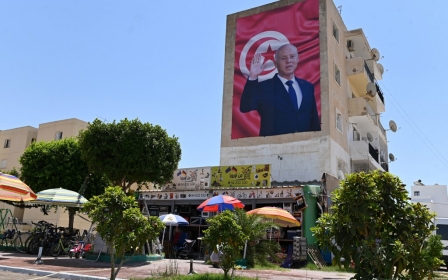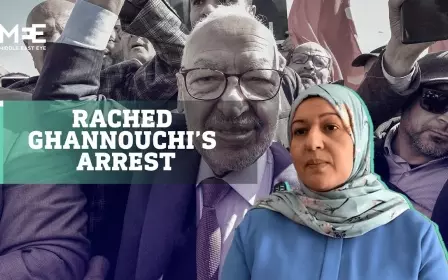Tunisian political prisoner Said Ferjani sends plea for solidarity

The daughter of Tunisian political prisoner Said Ferjani has released an open letter from her father, calling on opponents of President Kais Saied to “take a clear stance against oppressive authoritarianism”.
“The free world must stand by innocent free people who are being accused of conspiracy," Kaouther Ferjani wrote.
Ferjani, a prominent leader of the largest opposition party, Ennahda, was arrested in Tunis in February 2023 on several charges, including “money laundering”, attempting to “change the nature of the state” and “undermining external State security”, among other accusations.
His arrest came amid an escalating crackdown on journalists, politicians, activists, lawyers and the judiciary, in the wake of Saied’s 2021 seizure of power, in what critics have called a “constitutional coup”.
The letter was dictated to Ferjani’s lawyers during a prison visit, but due to intimidation by the authorities his daughter only saw it a month later.
New MEE newsletter: Jerusalem Dispatch
Sign up to get the latest insights and analysis on Israel-Palestine, alongside Turkey Unpacked and other MEE newsletters
“I only got it now because our lawyers are scared of speaking to anyone from abroad,” Kaouther Ferjani, who is based in the UK, told Middle East Eye.
The latest wave of arrests started in December 2022 and has seen at least 17 members of Ennahda arrested, including its leader, Rached Ghannouchi, who was detained at home in April for “conspiring against state security".
Shortly after, Ennahda’s offices were shuttered and the party was banned from assembly.
“Said Ferjani is a victim of the arbitrariness under President Kais Saied,” Salsabil Chellali, Tunisia director at Human Rights Watch, told MEE.
“His prosecution, like dozens of other critics and opponents from various political affiliations, is… founded on flimsy evidence.
“The charges against him are politically motivated and reflect Saied's determination to annihilate all criticism and the very idea of political pluralism.”
'My dad and others like him in prison… they are ready to fight and sacrifice [themselves] for their beliefs, but… don't let it be in vain'
- Kaouther Ferjani
Ferjani’s arrest was not a surprise. In 2021 his name appeared on a leaked document detailing Saied’s planned takeover. He was listed alongside others who would need to be detained in order to neutralise political opposition.
In the lead-up to his arrest, he was repeatedly interrogated and followed by the police.
Ferjani is no stranger to detention. In 1987 he was jailed for 18 months under then-dictator Zine El Abidine Ben Ali. During his detention, he allegedly suffered a broken back after being beaten with an iron rod.
Kaouther Ferjani says she is worried about her father’s prison conditions. Ferjani and 120 inmates share a cell with a capacity for 60 prisoners.
“They’ve intentionally put him [in with] violent, mentally ill criminals,” Kaouther Ferjani said.
Reportedly, one inmate had gouged out the eye of another. “God forbid anything happens.”
A taste of democracy
In 2011, the Arab Spring began in Tunisia and unleashed a wave of popular uprisings that toppled autocracies across the region.
Following the protests that toppled Ben Ali, Ferjani returned from exile and served as an MP for Ennahda, until parliament was dissolved in 2021 as part of Saied’s coup.
Since then, Saied’s campaign of detentions has swept through the political opposition and the judiciary.
An increasingly repressive society and a rapidly escalating economic crisis have led to a surge in people fleeing the country along dangerous smuggling routes.
In March, mounting discontent was expressed when thousands flouted a ban on protesting and took to the streets.
“It's a return to dictatorship after tasting democracy,” Kaouther told MEE. “We had a democracy, it was imperfect, but the way to fix it was with more democracy.”
Since her father’s arrest, Kaouther has been campaigning relentlessly in the UK for his release, but she has been met with a lukewarm response.
Despite a few supportive MPs, “with regards to actual ministers… we’ve had a few words but nothing tangible,” she said.
“My dad and others like him in prison… they are ready to fight and sacrifice [themselves] for their beliefs, but… don't let it be in vain.
“Anyone who agrees with them should do something about it.”
Middle East Eye delivers independent and unrivalled coverage and analysis of the Middle East, North Africa and beyond. To learn more about republishing this content and the associated fees, please fill out this form. More about MEE can be found here.





